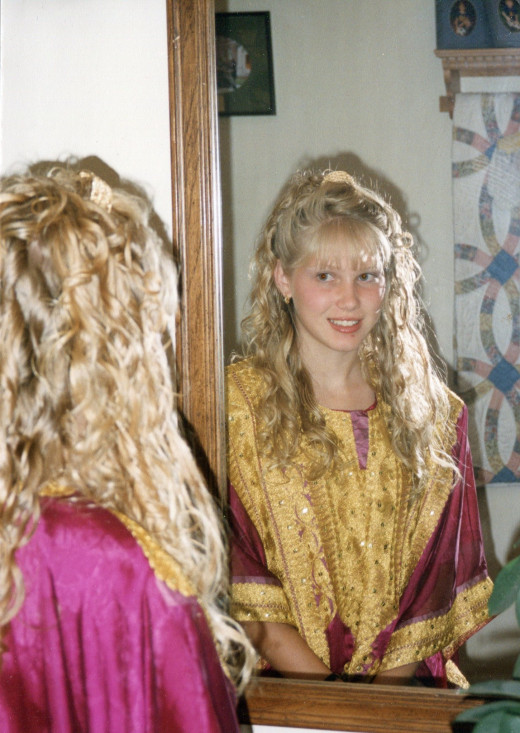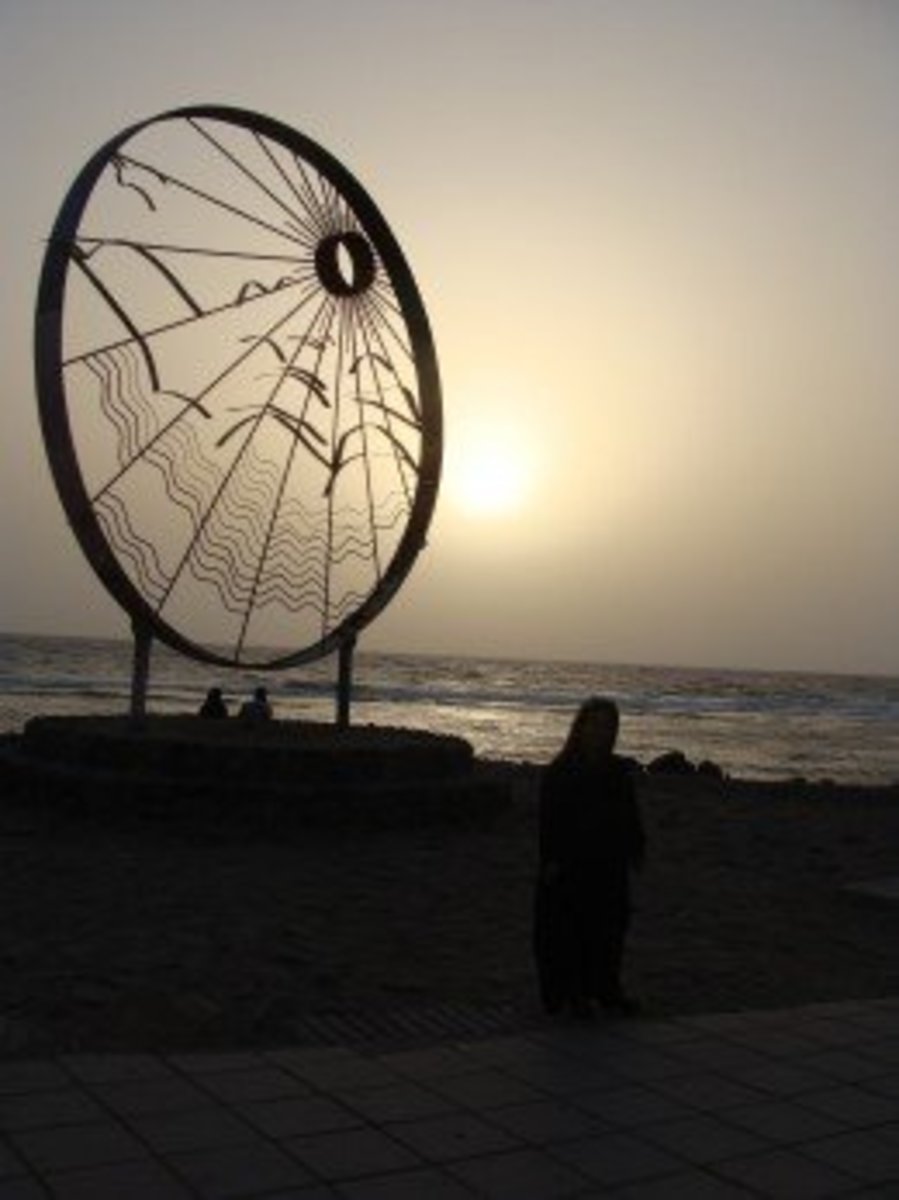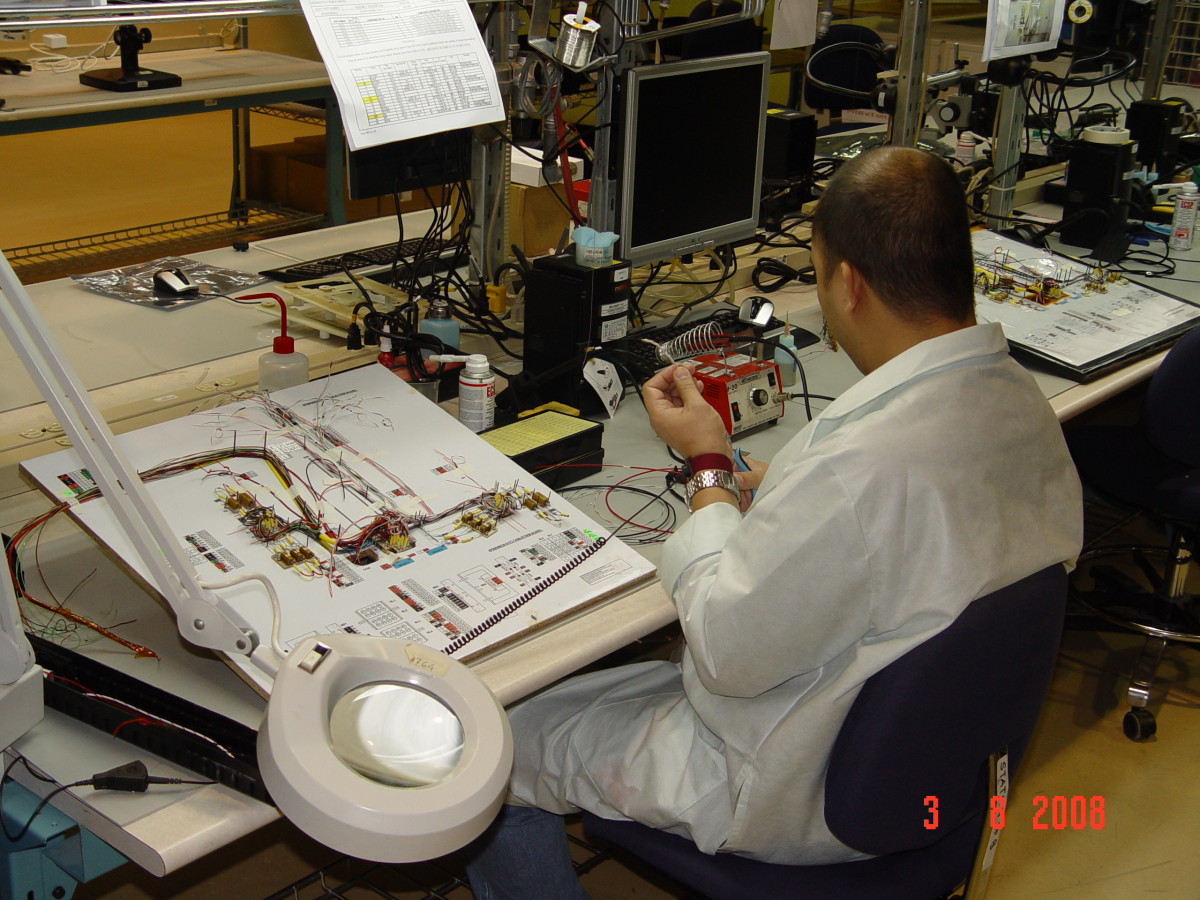- HubPages»
- Travel and Places»
- Visiting Asia»
- Middle East
My Invitation to an Arab Wedding





One of my students was married on Thanksgiving.
In 1990 I had the unique experience of moving to the kingdom of Saudi Arabia. I stayed for four amazing years. During my first year I had the opportunity to teach at the Women's Language Center in Riyadh, giving me a glimpse into the lives of the women who lived their lives in the most restrictive culture on the planet for females.
Third Edition:
In the first days of class I was under the impression all these ladies already knew each other. They hugged and kissed and offered each other their perfumes. If they couldn't smell your perfume on you, they offered you their own. When you thought about the practicalities of a desert environment, that gesture made perfect sense and made for a much more pleasant aroma in the classroom. Thank God I wasn’t allergic.
They talked and questioned each other as if they had known each other for years. There were a couple of cousins in the class, but for the most part, my students only met each other at the language school. Arab women just bonded quickly.
And they were very direct - with each other and with me. They told me my hair was too light to henna, a dye they put on their raven black hair that made it shine with a purple haze Jimmy Hendrix would envy. They told me I had a beautiful figure that my husband must enjoy very much. When I visited their homes they greeted me at the door with an incense burner. They told me I should let the smoke waft into my hair and particularly up my skirt because my husband would love it. These girls got right to the point.
My students were either in their late teens and were passing time until their marriages, or they were in their mid to late thirties already married with children. One particular student in the latter group was a real chatterbox. I mean, this woman would never be quiet, no matter how often or how nicely I asked her. As an end-of-the-course gesture, I had several of the women to my home for lunch including her. She stayed after the others went home and told me about recently losing her eight-year-old son in a car accident. In the Islam Faith, you don't grieve a death. Everything is God's will. So coming to class, talking with the other mothers, was her way of handling her grief. She didn’t put it to me that way. In fact she probably didn’t realize it herself.
I was a mother of sons also. My youngest son was six and my other son was nine. Twenty-one years later, I can still see that woman’s face.
One of my students invited me to her wedding in November. Apparently weddings weren't weddings like we have in a church in America. They were parties. The marriage took place at the engagement ceremony months earlier when the couple signed an official book to register the legal union. They were then free to consummate the marriage. The wedding could take place even a year later after the terms of the marriage contract were met, such as providing a house for the bride or presenting a certain amount of jewelry to the bride.
By 1990, many of the young Saudi women had traveled to the west and were learning to look out for their own interests. The brides of the new decade knew enough to have their family include in the marriage contract details like the bride must have her own house to ensure she didn't end up living with her mother-in-law. She might also insist she be the only wife. If the man wanted to take a second wife, he had to divorce her first, or he would have to divorce the first wife in order to marry her. This measure was a radical break from tradition in favor of the wife. Unfortunately, in any instance of divorce, the man still kept the children from the marriage. The women hadn't found a way around that little detail yet.
The day of the actual wedding, the arrival of the bride was simply the opening act. The west had an influence here also, with her entrance becoming an increasingly theatrical event complete with electronic music, strobe lights, and dry ice creating dramatic effects never imagined only a few years earlier. Her dress was more and more often the white bridal gown seen in magazines with heavy beading, elaborate lace, long trains, and extensive veils.
After her entrance the bride sat on something like a throne on an elevated stage and greeted her guests. My student/bride was very gracious in greeting me with the same enthusiasm she showed her closest relatives and friends. A kiss on one cheek and multiple kisses on the other cheek. I was honored.
Then the dancing began. These women, who lived in a society segregated from not only men, but also a great deal of the outside world, were dressed to the nines in gowns any Miss America contestant would envy. They were laden with priceless jewelry dripping from their ear lobes and necklines. Bosoms were still covered, as were arms. I was a little uncomfortable because my best gown that I wore for the occasion, of course, had a plunging neckline. I didn't own a single formal dress that didn't. But it was too late to do anything about that once I arrived and got a look at all the other women. Oh well, they knew I was American. What'd they expect?
The women proceeded to dance to Egyptian music in ways that would drive most men to drool. They swiveled their hips by flexing their knees, which produced an erotic but smooth revolution that was nothing like the belly dancing usually associated with the Middle East. It was much more seductive. They flung their long hair circularly, bending over at the waist with fearless abandon.
I was a little surprised they would be so uninhibited with each other, but then it was explained to me. They were auditioning - literally putting their best foot forward for the judgmental eyes of prospective mothers-in-law. Brides were most often selected for sons by their mothers, only with their father's final approval of course. And since preferred marriages were within the extended family (first cousins were the best matches) a family wedding offered mothers the most extensive review of all acceptable prospects. And the girls did not let their opportunity to show off go to waste.
First cousins were the best matches for a number of fundamental reasons: a bride price could be upwards from twenty thousand dollars in 1990. Why let that kind of money leave the family? A bride often left her father's house after marriage only to take up residence in her mother-in-law's house. More and more young girls were negotiating for their own house in marriage contracts, but at best that house would more than likely be within a stone's throw of her husband's family. Even the most heartless parents would feel more secure sending their daughter to a household full of relatives than one of strangers. The west is offended by this practice of intermarrying. We know the genetic Russian Roulette being played. Arabs had other concerns when it came to marriage and really didn't care who was offended.
Eventually, after many hours of dancing, the women were expected to veil themselves in anticipation of the groom's arrival to claim his bride. He would sit for a while with his bride and accept congratulations on his marriage. After something of an anticlimactic exit by the newlyweds, the women would go into dinner sometime around the midnight hour.
My student host let me know this was a thirty goat wedding, showing how far the Sabans had come out of the desert. She bragged all night about how she did not intend to cover herself in her abaya and veil when the groom arrived, as was expected of the women. They were a modern family, no longer under the old restrictions of less progressive people. And sure enough, she did not cover when the men arrived. She was a liberated Arab woman of the new decade: instead she threw herself to the floor and hid behind the chairs when the groom's party entered the hall. Yeah, you've come a long way baby.
Eventually I would learn a fundamental truth. In this part of the world, change only comes about in such ways. Not even by baby steps. More like just thinking about the possibility of maybe taking a step someday, out there in the indefinite future. In such terms, in this kingdom, progress was measured.
Join us at HubPages by going to http://hubpages.com/_2nckpc2qm2tl7/user/new/






